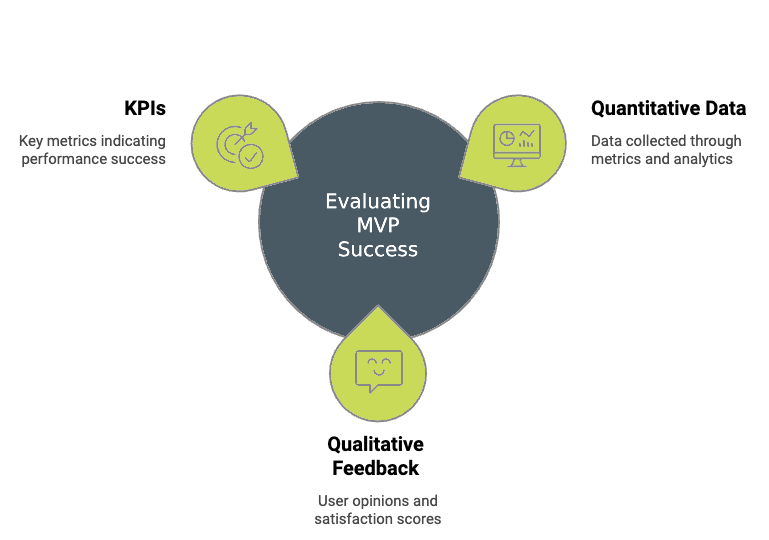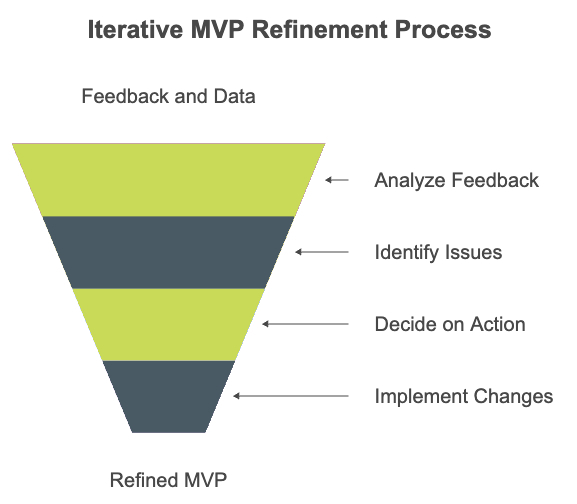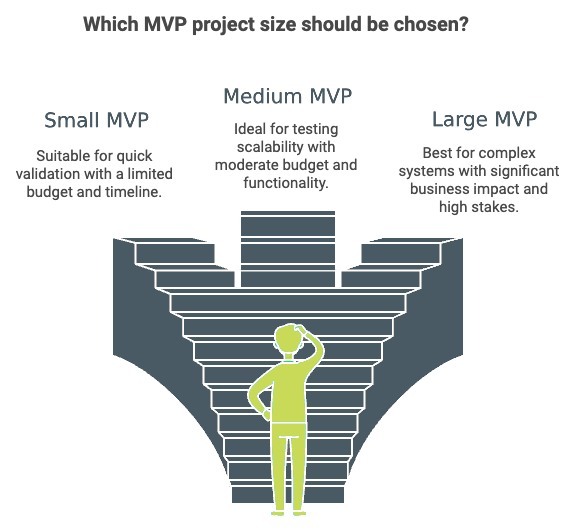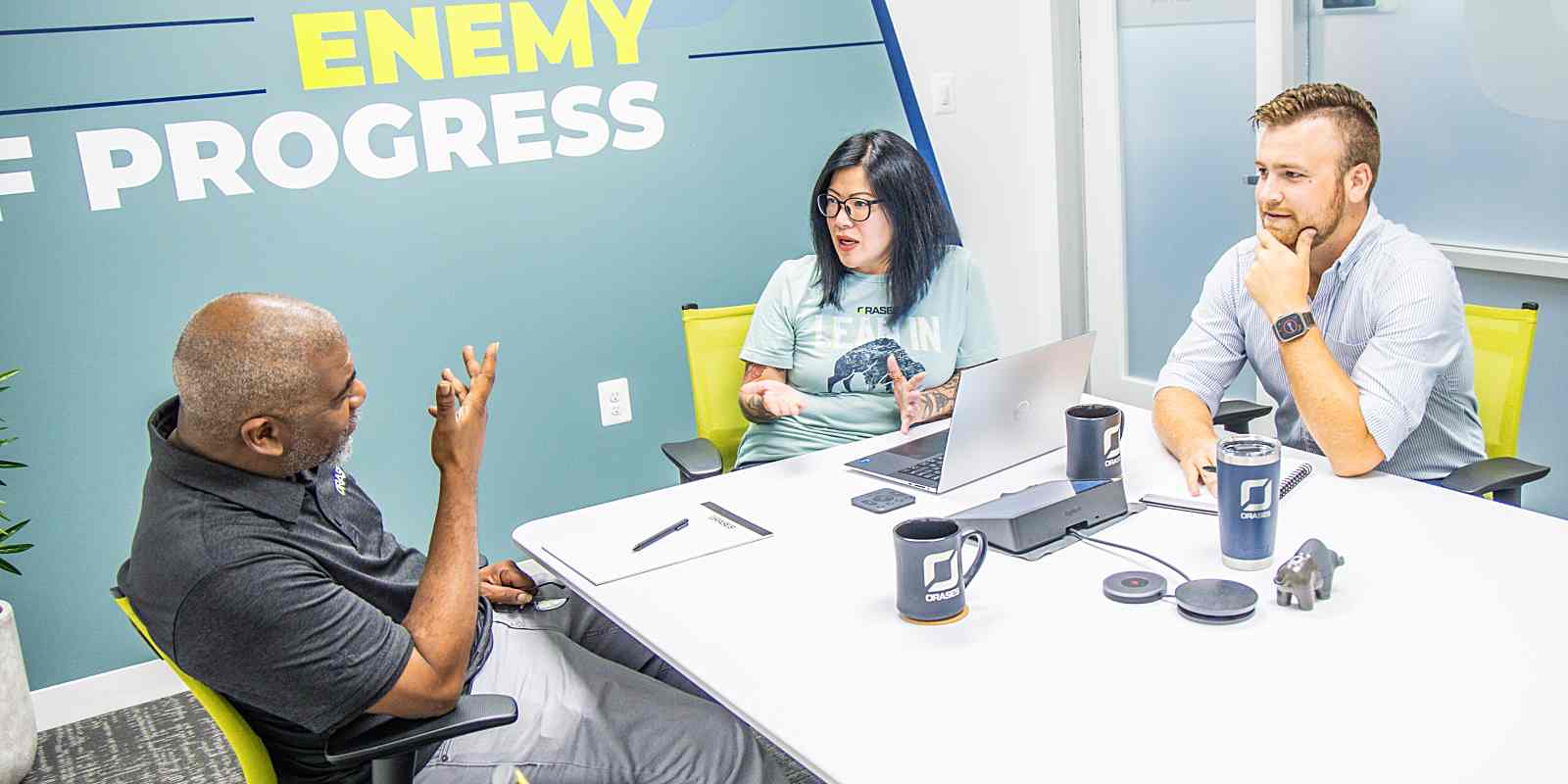In custom software development, understanding how to build a Minimum Viable Product (MVP) is a critical first step toward maximizing the ROI of a large-scale project. The MVP approach used in major organizations like Amazon and Uber is designed to test key functionalities, validate assumptions, and gather early-stage user feedback, reducing the risk of extensive rework.
According to a survey by PMI, projects that follow structured frameworks like Lean or Agile have 28% higher success rates than projects without clear methodologies. For executives looking at internal systems improvement, projects typically range from $100,000 to upwards of $1 million, sometimes taking six months to a year to develop a fully functional MVP. This strategic focus on ROI aligns with the best practices outlined by Eric Ries in The Lean Startup, where Ries emphasizes minimizing waste and optimizing for customer feedback through the “Build-Measure-Learn” loop.
Implementing the Build-Measure-Learn Loop in MVP Development
The Build-Measure-Learn loop, as described by Eric Ries in The Lean Startup, is a powerful framework for developing MVPs. This loop emphasizes continuous iteration, allowing teams to make data-informed adjustments that bring the MVP closer to meeting end-user needs and achieving business goals. Here’s a breakdown of each part:
1. Build: Creating the Core MVP
The “Build” phase focuses on creating a version of the product that includes only the essential features. The aim here is not perfection but rather speed and functionality. Start with the “must-have” features that define the MVP’s purpose, such as a streamlined data entry interface in an internal workflow tool. This phase often involves rapid prototyping and leveraging existing frameworks or low-code tools to expedite development.
- Tip: Allocate about 50-60% of the initial project timeline to this phase to ensure a functional product is available for real-world testing without exhausting the budget on non-essential features.
2. Measure: Gathering Data and User Feedback
In the “Measure” phase, the MVP is tested with real users, gathering quantitative data (e.g., user engagement metrics) and qualitative feedback (e.g., user satisfaction scores). Key Performance Indicators (KPIs) like task completion rates, user retention, and error rates are critical metrics that reveal how well the MVP meets its objectives.

- Example: For an internal data processing tool, track metrics like data entry time, error reduction, or employee satisfaction with the new interface.
- Tip: Consider using a feedback survey or user tracking software to collect this data systematically, ensuring insights are actionable. The Lean Analytics book emphasizes the importance of setting these metrics from the start, as they drive critical decision-making.
3. Learn: Iterating Based on Insights
The “Learn” phase translates feedback and data into actionable changes. If the initial build did not meet its goals (e.g., if users found the interface unintuitive or features were not fully solving the problem), this is the time to pivot or improve. The insights gained here should inform the next “Build” phase, leading to iterative cycles that gradually refine the MVP.

- Example: If user feedback indicates that a workflow automation feature is helpful but too complex, simplify it and test it again in the next loop.
- Tip: Limit the number of changes in each iteration to maintain focus on core goals. Inspired by Marty Cagan, he suggests “focused iterations” to avoid scope creep and ensure each cycle brings meaningful progress.
Budgeting & Timeline Considerations Across Project Scales
Small MVP Projects
- Budget: $50,000 to $150,000
- Timeline: 2 to 4 months
- Project Scope: These MVPs focus on testing a few core features with minimal integrations, typically targeting a specific pain point with a limited user base. For example, a basic internal portal for employee feedback or a simple inventory tracker may fall into this category.
- Goal: To achieve quick validation with low-risk investments, often suitable for startups or departments within larger organizations testing a new process.
Medium MVP Projects
- Budget: $150,000 to $500,000
- Timeline: 4 to 6 months
- Project Scope: Medium-scale MVPs often support more substantial functionality and involve additional integrations with existing systems (e.g., HR systems or CRM software). This type is typical for mid-sized businesses seeking to streamline specific internal processes, like workflow automation or team collaboration tools.
- Goal: To test scalability and functionality with a broader user base, providing data that guides further development into a more comprehensive solution if successful.
Large MVP Projects
- Budget: $500,000 to $1 million+
- Timeline: 6 to 12+ months
- Project Scope: Large MVPs are often highly customized, complex systems with numerous integrations and compliance requirements. Examples include multi-functional enterprise systems, custom ERP modules, or advanced data analytics platforms aimed at centralizing data across departments. These projects frequently involve iterative phases and require a phased roll-out to ensure adoption.
- Goal: To validate a core system that will underpin significant business operations, typically for large organizations with complex needs and high stakes in terms of ROI and operational efficiency.

Choosing the appropriate budget and timeline is critical to realizing ROI effectively. For instance, companies with smaller MVPs can quickly validate ideas and decide whether further investment is warranted, while larger projects allow for thorough testing of mission-critical functionalities.
A PMI report highlights that projects with phased, scalable MVPs are 25% more likely to meet their goals and stay within budget. By aligning scope, budget, and timeline, executives can ensure that their MVP project not only meets immediate needs but also lays a foundation for strategic growth and system expansion.
Why an MVP Approach is Essential for High-ROI Software Projects
The MVP model is particularly valuable for enterprise-level internal systems, where complexity and cost are high. By launching an MVP, companies can build a “bare bones” version of the final product, providing core functionality with minimal investment. Marty Cagan, in Inspired: How to Create Products Customers Love, discusses this approach as essential to ensuring resources are channeled toward features that genuinely solve user problems, rather than simply fulfilling initial requirements. By creating a basic version of the product and testing it with users, you can validate your assumptions early, aligning development efforts with actual business needs.
In our experience as consultants, internal systems that streamline operations like employee portals, automated workflows, or data analytics tools benefit tremendously from an MVP approach. These systems often demand robust capabilities and custom integrations, resulting in complex requirements that an MVP can effectively scope and test, helping secure executive buy-in and reduce the chance of budget overrun. With MVPs typically starting around $500,000, the savings on potential rework and the insights gained from early user feedback more than justify the investment.
Final Takeaway: MVPs as a Roadmap to Success
Building an MVP is not just about creating a quick prototype; it’s a structured approach to validate, refine, and optimize internal systems before full-scale implementation. By focusing on ROI, adopting frameworks from trusted methodologies, and leveraging data at every stage, executives can ensure that their investment not only streamlines operations but is strategically aligned with organizational goals. Through careful prioritization and measured, iterative development, an MVP can serve as a powerful roadmap for successful software projects, giving businesses the foresight they need to achieve long-term value.






